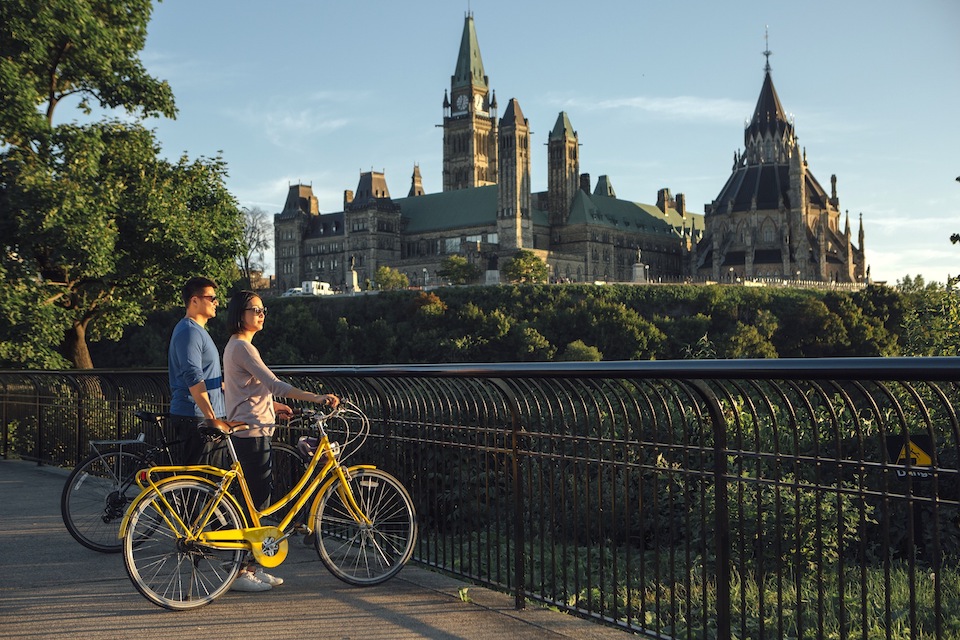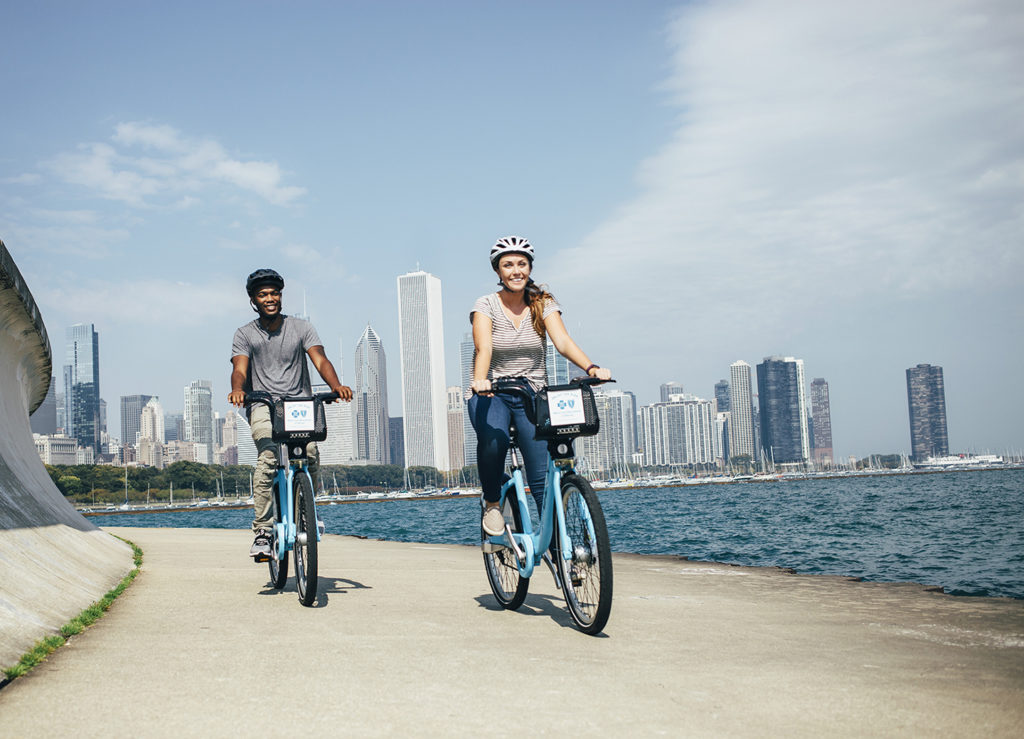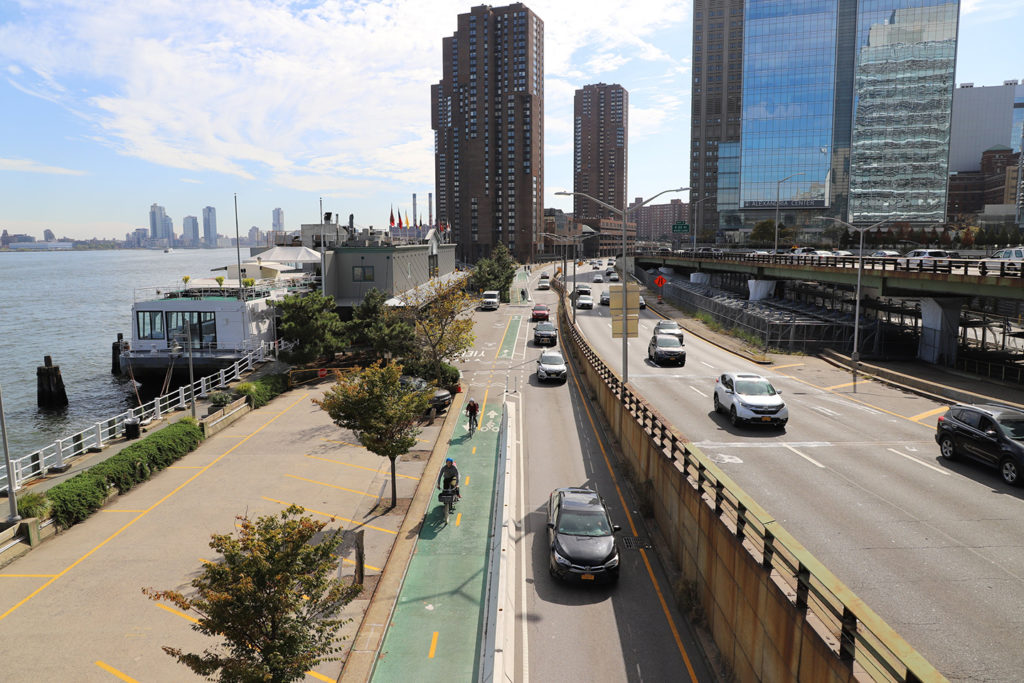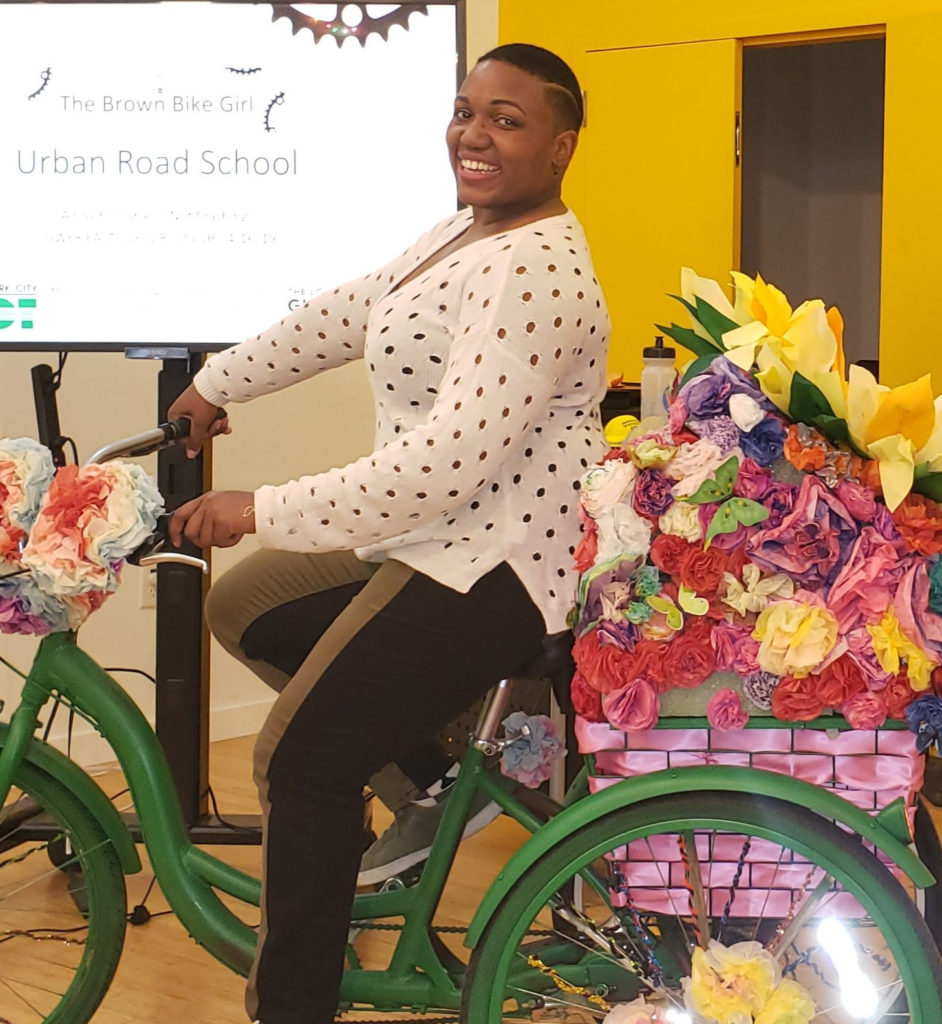
• Flip Book • eNews • eAdventures • eCities • eBikeTypes • eRoad • eMTB • eUrban • eCargo • eBikeTests •

• Flip Book • eNews • eAdventures • eCities • eBikeTypes • eRoad • eMTB • eUrban • eCargo • eBikeTests •
March 31, 2021 - New York City (NYC) is a densely populated metropolis comprising five boroughs, home to over 8 million people and part of a region with a population of more than 20 million. As NYC’s pre-pandemic streets became more congested than ever, plans to make it safer and easier for New Yorkers to cycle intensified.

A typical day in New York City sees one million trips made by bike. A typical year sees about 60 miles of bike lanes installed and 20 miles of protected bike lanes added to the network. With the 2019 launch of the Green Wave plan, the Department of Transportation (DOT) set out to amplify that work with the goal of seeing one in every ten trips in the city taken by bicycle by 2050.
With record installation of bike infrastructure in 2020, the DOT reports being on track to meet its objectives.
Last year, NYC installed 28.5 miles of protected bike lanes, 35.2 miles of conventional bike lanes and 83 miles of car-free Open Streets. The city saw an 80% year-over-year growth in cycling and record-breaking trip numbers on the bike share system.

The number of trips made on the Citi Bike system in September 2020 actually surpassed the number of trips made pre-pandemic in September 2019. This fall, there were 43,000 additional monthly trips, for a total of 2.5 million trips that month.
As part of the early pandemic response, the Citi Bike system was expanded to include locations at hospitals, and nearly 30,000 healthcare workers, first responders and transit workers received free annual memberships as part of the Critical Workforce Membership Program.
After being pulled in 2019 due to poorly installed brakes, e-bikes are now slowly being added back into the bike share fleet.

Last year also saw Courtney Williams named as the People’s Bike Mayor of New York City. Through classes, community rides and a recent bike repair event, Williams has centred her work on helping more people ride bikes. Williams is also aiming to prioritize the implementation of protected bike lanes in Black and Brown communities that are regularly overlooked in bike planning and programming.